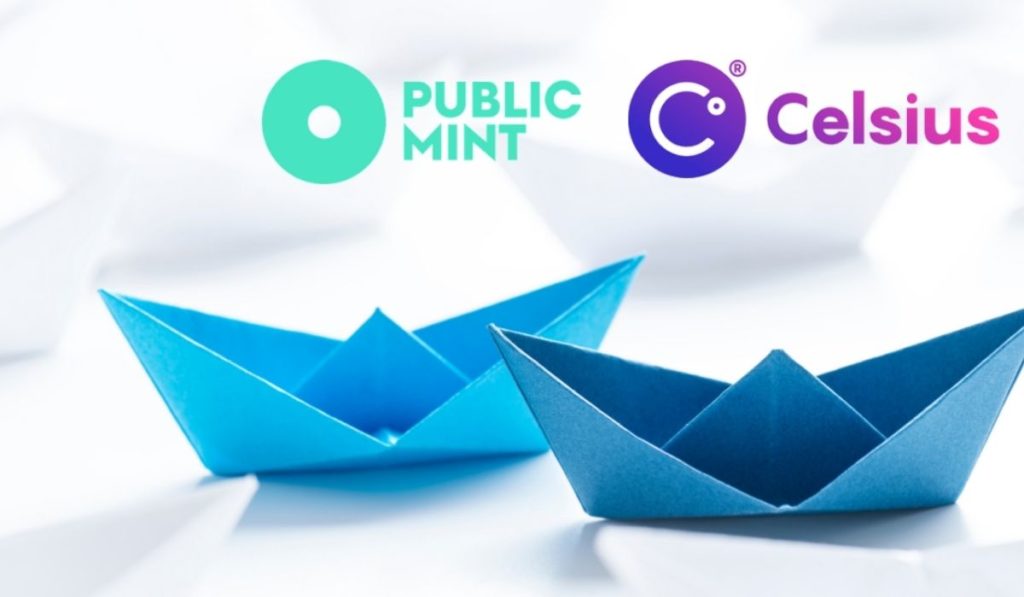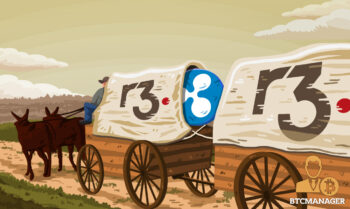2018-12-4 20:00 |
We sat down with Kevin Werbach, author and Professor of Legal Studies and Business Ethics at the Wharton School of the University of Pennsylvania, to discuss his teaching, research and new book, The Blockchain and the New Architecture of Trust. Werbach’s latest work, both on campus and in the book, explores how the blockchain, which relies on building trust in a trustless system, can become broadly accepted as trustworthy — by consumers, businesses and governments around the world. In particular, he shared with Ripple thoughts on where he sees real world value in applications of these new technology, what the future might look like for digital assets and blockchain and the importance of creating more legal and regulatory clarity to support innovation while also protecting consumers.
If you’re interested in learning more, download a free excerpt of Werbach’s book, The Blockchain and the New Architecture of Trust, or find it on Amazon. You can also follow coverage of Ripple’s ‘Expert Views’ panel discussion featuring Werbach on Wednesday, December 12. Coverage will be available on Insights, Twitter, YouTube and more.
Questions and Answers
Team Ripple: Can you preview any key takeaways from your new book, The Blockchain and the New Architecture of Trust?
Blockchain isn’t an alternative to trust; it’s a new form of trust that tries to remove dependence on specific entities. For cryptocurrencies and blockchain-based systems to reach their potential, they themselves must be trustworthy. And that means much more than the formal security of consensus on a distributed ledger. We need to examine more closely what kinds of problems blockchain can address, and the trust landscapes of those domains. And, counter-intuitively for some, law will largely be a force that helps the blockchain ecosystem. Law, regulation and governance are mechanisms of trust. We need to look at how they can be employed to promote trust in blockchain-based solutions, and how blockchain and legal trust interact.
Team Ripple: What did you learn from your experience writing this book, in talking to so many important leaders in the space?
I’m glad I chose to be a professor rather than a professional investor, because I’m terrible at market timing! I turned in my final manuscript at the end of 2017, just as cryptocurrencies were hitting their all-time highs, and it was published on November 20, 2018, in the midst of a crash. And actually, talking to so many brilliant people from so many different fields who were passionate about this technology as the next great digital platform convinced me that whatever happens with cryptoasset prices in the near term, the future of this space is incredibly bright. And frankly, it’s good that it takes roughly two years to write and publish a book. It forces you to look at the big picture, and the sustainable aspects rather than the features that change rapidly.
Team Ripple: Did you encounter use cases that are more ideal than others for digital assets blockchain technology?
Certainly! I start one chapter of my book by talking about the Whoppercoin — an ICO that was essentially just a loyalty point system for Burger King customers in Russia. There was no reason whatsoever why a blockchain was needed. It was all probably a humorous marketing campaign, but the scary thing was that, during the boom last year, you really couldn’t tell. In general, you always need to ask, “Is this a real and substantial problem to be solved,” and “why won’t a traditional technology solve the problem just as well, if not better?” The best use cases are ones where either the cost of trust (typically in the form of layers or intermediaries) is a problem, or where there is a “trust gap” among coordinating entities. The first explains most cryptocurrency or digital asset uses, while the second represents the enterprise applications. Payments, where Ripple is active, have aspects of both.
Team Ripple: Where do you see the most traction in using digital assets and blockchain technology to solve real problems in business today?
As I wrote on Medium over the summer, I see three largely separate uses emerging. The first is cryptocurrencies. There the low hanging fruit is clearly payments, where there are serious inefficiencies moving money between silos and jurisdiction, as well as financial inclusion opportunities where we’re starting to see adoption. Down the road, cryptocurrencies will be the foundation for decentralized applications. Those have tremendous potential, but aren’t yet ready for prime time. The second use is distributed ledgers for tracking assets, or what I call translucent collaboration. This is particularly important in financial services and in supply chain, where there are multi-trillion dollar problems because no on has a unified view across the entire system. Second-order features like provenance (such as Walmart’s system to track leafy greens for food safety and Eveledger’s work in the diamond industry) as well as trade finance, where massive capital could be unlocked, are quickly coming into play. And finally, there is regulated cryptoasset trading, through security token offering and crypto-derivatives. The prospect of a secure, programmable, native-digital token that represents assets or intangibles is a Wall Street dream, which that community is racing to turn into a reality.
Team Ripple: How will the digital asset market evolve over the next year, next decade?
There’s clearly too much noise, hype, speculation, fraud and competing platforms. And there’s clearly too few systems that normal people can understand and actually use. In the next year we’ll see which of the platforms and applications that road the boom starting in 2016 fail to achieve escape velocity, which will bring some clarity to the market. We’ll get greater clarity from the regulators, including pathways for companies to come into compliance without destroying their value proposition. Corporate adoption will be a slow process for a while, but it will be substantially farther along a year from now.
In a decade we’ll have some killer apps. Some will be in restructuring traditional markets, like financial trading and payments platforms. Others will be new decentralized tools that didn’t exist before: perhaps prediction markets, content micropayments or microgrid energy trading. Everyone will look back and say, “duh, that was obvious!” But you never know ahead of time when the solution and the timing will match up to spark massive adoption. I wouldn’t dare predict the price of any cryptoasset ten years from now, but I’m absolutely certain the overall market — in terms of developer activity, platform transactions and corporate/government adoption — will be far bigger in a decade than it is now.
Team Ripple: What are some of the hurdles the industry faces in terms of both business and technological progress?
On a technical level, the basic maturity and reliability of the core platforms is still not where it needs to be, although progress is being made. Scalability is a huge issue for some applications, like retail payment processing or games, although not for all of them. Smart contracts need viable dispute resolution mechanisms, where appropriate, which will be a combination of traditional legal means and arbitration, on the one hand, and novel token-based decentralized oracles, on the other.
Probably the biggest two issues, though, are user experience and cross-organizational dynamics. By user experience I don’t just mean the design of application interfaces; I mean all the hard work to make bearer instruments usable for ordinary people. A system where you need to understand how to manage keys, and where you lose everything if your key is stolen, isn’t ready for the mainstream. On the organizational side, the biggest challenge in most enterprise consortia and financial services implementations of blockchain technology is getting the participants to cooperate. Just because a blockchain technically offers secure data sharing without giving up control doesn’t mean established players will feel comfortable ceding power to consortia involving their competitors. Look at the TradeLens solution for international shipping developed by IBM and Maersk, for example. Other shippers don’t trust that it’s a truly open, decentralized platform, so they are forming their own competitors, which defeats the purpose. The industry needs to overcome the hurdle.
Team Ripple: Tell us more about your work at Wharton, one of the schools participating in Ripple’s University Blockchain Research Initiative (UBRI). How has your role as a professor informed your work as an author?
Werbach: I study how technology impacts business, law, and society. Most professors focus on a narrow area, but I’ve always had an interdisciplinary interest in emerging trends. So I’ve done research (and built courses) on Internet and telecommunications policy, gamification, law and ethics of big data, and now blockchain. I view teaching as a form of learning, and vice-versa. It takes discipline to synthesize a new area, identify the important parts, and develop frameworks to convey them. You’re basically creating a field out of a collection of data points. So, researching blockchain and cryptocurrencies for my academic writing, developing The Blockchain and the New Architecture of Trust, and creating courses were all part of the same process.
Team Ripple: What interests your students about blockchain and digital asset technology?
Werbach: I teach undergraduate and MBA business students, as well as some students from elsewhere in the university (such as engineers). Many are interested in gaining job skills that will provide a competitive advantage in building their careers. Some have backgrounds in specific areas like finance or healthcare, where they can see opportunities for blockchain-based solutions. Some have been trading cryptocurrencies for investment purposes, and want to see the bigger picture. Many are just curious about an area they read about a lot in the media but don’t fully understand. They want to dig in and learn what’s real in the space.
There are also plenty of other students at Penn even more deeply engaged in the area, who don’t feel like they need an overview course. (The Penn Blockchain Club has over 600 members, less than two years after it launched.) So they are doing courses in computer science, finance, entrepreneurship, game theory to supplement their blockchain-specific knowledge.
Team Ripple: How is this the same or different than the interests of the business community and larger audience of blockchain and digital asset enthusiasts?
Werbach: I suspect that in terms of substantive interests, my students are fairly representative of their overall demographics. However, students have the opportunity to explore areas they are a curious about, which might create professional opportunities, but aren’t directly linked to any day-to-day job responsibilities. They have a degree of optionality that most professionals don’t. And they are in an environment where, at the same time they are taking my course, they may be taking a course in management or marketing or operations, which offers them complementary knowledge.
About the Author
Kevin Werbach is professor of Legal Studies and Business Ethics at the Wharton School, University of Pennsylvania. A world-renowned expert on emerging technology, he examines business and policy implications of developments such as broadband, big data, gamification, and blockchain. Werbach served on the Obama Administration’s Presidential Transition Team, founded the Supernova Group (a technology conference and consulting firm), helped develop the U.S. government’s approach to internet policy during the Clinton Administration, and created one of the most successful massive open online courses, with over 450,000 enrollments. His books include For the Win: How Game Thinking Can Revolutionize Your Business and The Blockchain and the New Architecture of Trust.
The post Author Kevin Werbach Previews New Book: The Blockchain and the New Architecture of Trust appeared first on Ripple.
origin »Bitcoin price in Telegram @btc_price_every_hour
Time New Bank (TNB) íà Currencies.ru
|
|


















